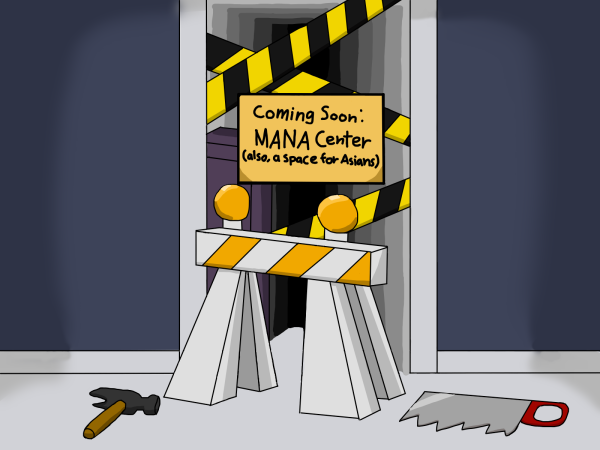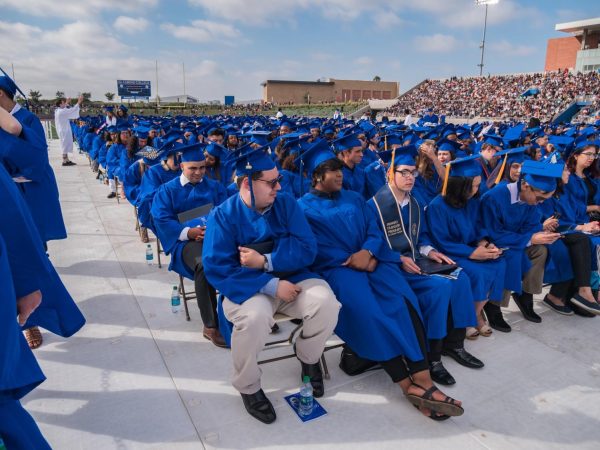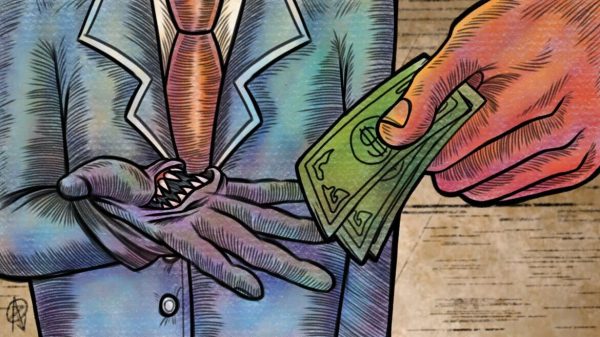Support unhoused students by letting them sleep overnight in their cars
For a little more than a year, I slept mostly in my car.
Each day I was worried, planning and plotting my moves. Where could I park? Which restaurant bathroom sink could I wash up in without getting stared down or kicked out? Where could I access electrical outlets or use free Wi-Fi without having to worry about time limits?
As hard as it was, I appreciated that I had a car to rely on. I felt much safer and warmer than the two nights that I slept on the street. I had a more secure place to keep my things than what a tent or tarp could provide. Being mobile also gave me many more options on where to stay.
I recognize my own privileges over most El Camino College students and others who are unhoused. I had no children or other family members to care for. I wasn’t in school at the time. And, I had a job with some income.
Most notably, I am white, so police, security guards and store managers treated me differently than people of color living in their cars or on the street.
In some cases, people of color sleeping in a car have been shot and killed by police – Marquintin Shandlin and Kisha Michael in Inglewood, California; Tyisha Miller in Riverside, California; and Willie McCoy in Vallejo, California; – all Black people who were sleeping in a car when they were killed by law enforcement.
For El Camino college students – who according to El Camino’s Fall 2020 Facts and Figures consist of a population of 14% Black and 48% Latinx students – access to a safe place to sleep is both a safety and a racial justice issue.
As students return to campus in 2022, the El Camino College District and college president Brenda Thames should follow the lead of Long Beach City College and reverse El Camino’s opposition to having unhoused students sleep in their cars overnight in campus parking lots.
With the catastrophic combined crisis of COVID-19 escalating rental costs, housing shortages and massive gentrification and displacement that has caused the construction of tent cities across L.A. County, there is no doubt higher numbers of students are facing housing insecurity as they come back to El Camino in person.
In 2020, the University of California Los Angeles (UCLA) issued a report, State of Crisis: Dismantling Student Homelessness in California, documenting that “kindergarten through college student homelessness has risen nearly 50% in the last decade,” and that “numbers are likely higher in reality due to COVID-19.”
The Los Angeles Homeless Services Authority released the results of its 2020 Greater Los Angeles Homeless Count documenting that at least 66,436 people were experiencing homelessness, representing a 12.7% rise from 2019.
The count also revealed that the South Bay’s unsheltered population is 65% larger than Skid Row’s unsheltered population, with people living on the street, in a tent or makeshift shelter also increasing by 8%.
Black and Latinx students are much more likely than white or Asian students to experience housing and food insecurity. The UCLA report found that 70% of California college students experiencing homelessness were Latinx and 9% were Black, despite the fact that overall 44% of students are Latino, 27% are white, 14% are Asian or Pacific Islander and 6% are Black.
Some El Camino students are struggling to juggle classes, work and care for children or elders. Providing unhoused students with a safe place to sleep, shower and use the restroom, in addition to free internet access for studying could be one less thing that students have to worry about.
In 2019, The Union reporters Jose Tobar and Omar Rashad wrote articles covering the struggles of unhoused students at El Camino and followed Assembly Bill 302 as it moved through the state legislature.
Known as the “safe lots act,” AB 302 would have mandated that community college students be allowed to sleep overnight in their cars at college parking lots.
In an editorial published that same year, The Union called upon the El Camino district to support the bill.
The Union cited a 2018 campus survey of 1,633 students at El Camino found that 39% of students experienced a form of housing insecurity. The Union’s findings included students living on the street, in abandoned buildings or in their cars, doubling up in crowded living conditions, eviction, being thrown out by family or roommates or facing increases in housing costs that put them at risk of losing a place to stay.
That same year, the Hope Center for College, Community and Justice at Temple University in Philadelphia reported that nearly 20% of community college students in California were unhoused. The Center surveyed nearly 40,000 students at 57 community colleges during the fall semesters of 2016 and 2018.
As many as 400,000 community college students statewide might have been houseless in 2019 when many college and district officials across California worked to defeat AB 302.
Unfortunately, former El Camino President Dena Maloney was one of the college administrators who opposed the bill, claiming that parking lot access wouldn’t adequately address student housing needs and that it would increase El Camino costs. She further argued that El Camino already did enough to support houseless students.
Maloney also opposed the bill despite recommendations from her colleagues. At the time, ECC’s Food and Shelter Task Force released a program and legislative platform stating that they would work with the ECC president’s office to establish a safe lots program on campus, including access to bathrooms. Similarly, the Community College League of California released recommendations that colleges have opportunities to “provide overnight safe parking options.”
Maloney’s and other college administrators’ opposition gutted the bill, including forcing an amendment that would prohibit community colleges from participating if they were within 250 feet of an elementary school, implying that community college students would harm children.
The amendment was an especially cruel and baseless claim, and also impossible given that the lots would be open from 10 p.m. to 8 a.m. at a time when elementary schools would be closed.
Assembly member Marc Berman pulled AB 302 when the student leaders who had pushed so hard to pass the bill felt that – as amended – it would do more harm than good.
In his statement upon pulling the bill, Berman said, “Homeless students are not pedophiles that need to be kept away from children. They are men and women — many of them barely adults themselves who are trying to improve their lives by obtaining a better education. They should be celebrated, not stigmatized.”
The College administrators that stopped the safe lots bill claimed they knew best what students needed. They opposed the bill in part because Cal-State and UC campuses weren’t included.
But they ignored data that 5% of UC students and 10% of Cal State students were unhoused at the time compared to nearly 20% of community college students. And they didn’t include that UC and Cal State campuses have student housing, while nearly all community colleges do not.
College administrators opposing the bill also claimed that the most vulnerable students didn’t have cars, which is true. But they failed to recognize that many unhoused students do. For example, in the 2018 survey of El Camino students, 70% of all students surveyed reported that they drive to school and 24% ride in someone else’s vehicle.
I wonder if El Camino College administration ever talked to any of the students experiencing housing insecurity on campus. I wonder if they read documented stories about unhoused students in The Union. I wonder if the college administrators who opposed the proposal spent one night with their students searching for a safe place to sleep and wash up the next day before rushing to class.
Even without the state legislative mandate, Long Beach City College has launched their pilot program for overnight student parking, the Associated Student Government at Palomar College developed an overnight parking proposal for unhoused students, and De Anza College’s student newspaper published an OpEd outlining a plan for a safe lots program.
El Camino should create an emergency committee to immediately do the same.
The committee should include people with significant expertise, including unhoused students, programs on campus working with students facing the greatest housing insecurity including the El Camino food pantry, Formerly Incarcerated Re-Entry Students Thriving (FIRST) and the office of student equity and achievement, as well as area experts including the South Bay Coalition to End Homelessness and campus leaders who are implementing the program at Long Beach City College.
If El Camino cares about its most economically vulnerable students, President Thames and the Board of Trustees will repair the harm that past administrators caused when they rejected a program that would significantly help students without housing.
With greater support, students will be more likely to graduate, transfer to a university or stable career, and move beyond their current reality struggling to survive on the streets of L.A. County.








